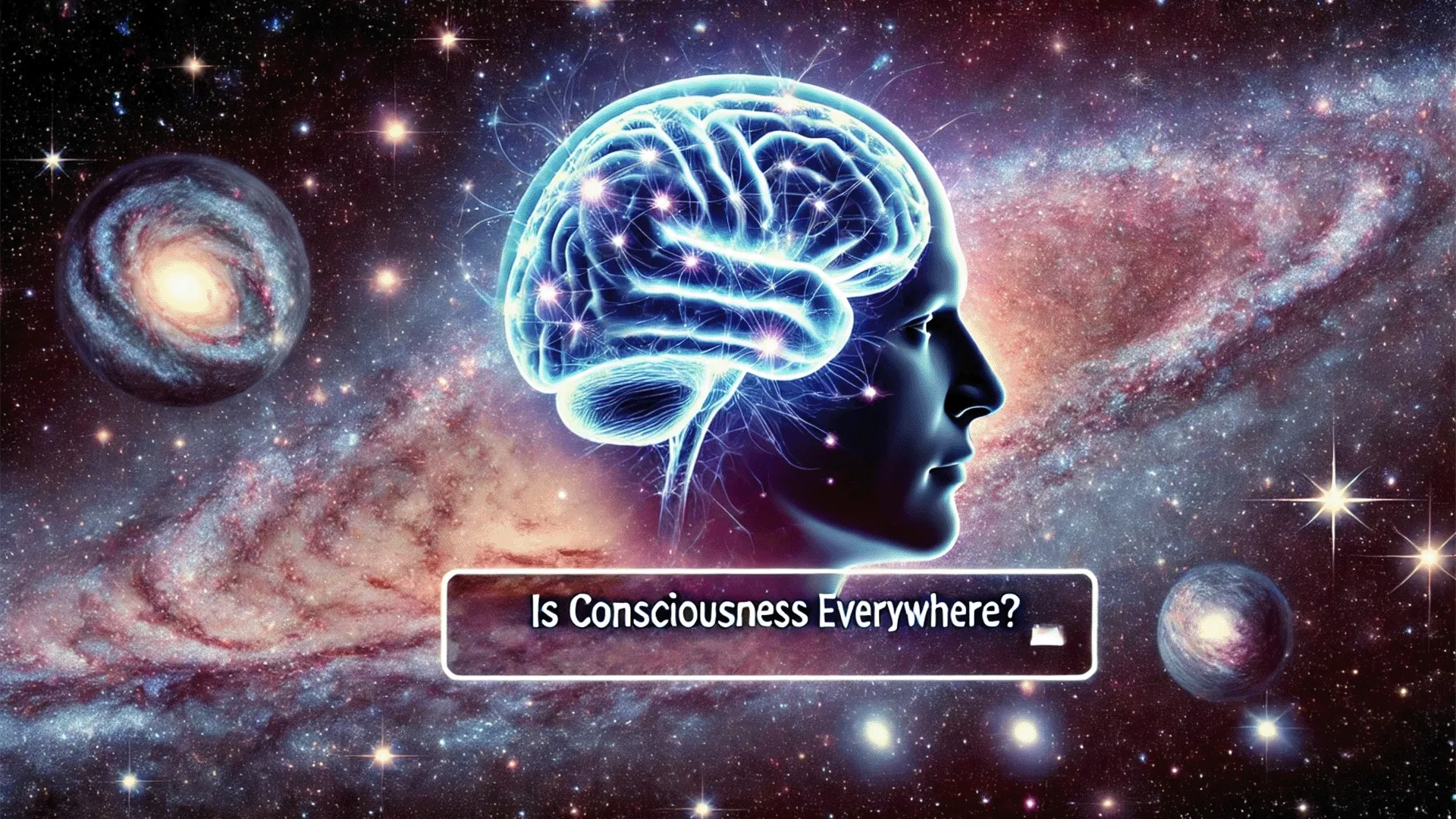Consciousness is the cornerstone of our existence—everything we know, experience, and are aware of hinges on this enigmatic phenomenon. Yet, as fo
Consciousness is the cornerstone of our existence—everything we know, experience, and are aware of hinges on this enigmatic phenomenon. Yet, as foundational as it is, consciousness remains one of the most profound mysteries in science and philosophy. But why does a universe composed largely of non-conscious matter somehow coalesce into systems capable of “felt” experiences? Is it possible that we’ve misunderstood the very nature of consciousness all along?
Modern neuroscience has upended many of our long-held assumptions about consciousness. Therefore, it’s time to rethink its origins and explore whether consciousness might not arise solely from complex brain activity but could instead be a more fundamental property of the universe—something akin to gravity or space-time itself.
The Core Mystery: Why Does Matter Feel?
At its heart, consciousness is the experience of “what it’s like” to be something. Philosopher Thomas Nagel famously illustrated this in his essay What Is It Like to Be a Bat? By imagining the world through the sensory lens of echolocation, Nagel emphasized how subjective experiences differ fundamentally from objective descriptions.
But this raises a crucial question: how does non-conscious matter organize itself to produce subjective experiences?
For instance, neurons in the brain are composed of atoms—just like a rock or a chair. But when these atoms are arranged in a specific way within a brain, they suddenly “feel” something. This transformation defies easy explanation and suggests that we might be looking at consciousness from the wrong angle.
Are We Wrong About the Brain’s Role in Consciousness?
For centuries, consciousness has been assumed to emerge from the brain’s complexity. The human brain, often touted as the most intricate structure in the known universe, processes sensory inputs, integrates information, and orchestrates behaviors. Therefore, it’s easy to conclude that consciousness is simply the byproduct of these processes.
But recent discoveries challenge this intuition. For example:
- The Illusion of Present-Moment Awareness
Neuroscience reveals that what we perceive as the “present moment” is a construct. When you press a piano key, you feel, see, and hear it simultaneously—but these signals actually take different amounts of time to reach your brain. Your mind synchronizes these inputs to create a seamless experience of “now.”Therefore, if consciousness isn’t directly tied to real-time processing, it could be more abstract than we’ve assumed. - The Locked-In Syndrome Paradox
The case of Jean-Dominique Bauby, who wrote The Diving Bell and the Butterfly using only his eyelid, shows how rich conscious experiences can exist even when external behaviors are almost entirely absent. This raises the possibility that other systems—without the ability to communicate or exhibit behaviors—could also harbor consciousness.
What If Consciousness Is Fundamental?
If consciousness isn’t exclusive to complex brains, could it be a fundamental aspect of nature itself? This idea, known as panpsychism, suggests that consciousness pervades the universe at all levels. Just as every particle has mass and charge, it might also possess a rudimentary form of consciousness.
But how would this reshape our understanding of the universe? Here are some possibilities:
1. Consciousness as a Universal Force
Consciousness might function similarly to gravity: omnipresent and foundational, influencing how matter and energy interact. Under this view, brains don’t generate consciousness—they amplify or channel it.
2. Shared Experiences Between Systems
If consciousness is universal, systems might interact and share experiences. Imagine a future science that allows humans to directly experience the intuitions of a genius like Albert Einstein. This could revolutionize communication and understanding.
3. Ethical Implications
If plants, bacteria, or even inanimate systems possess rudimentary consciousness, our ethical responsibilities might expand dramatically. Should we rethink how we treat all forms of life—or even objects?
You want something? Click here and The universe will respond!
Evidence from Modern Neuroscience
Despite its bold implications, panpsychism isn’t entirely speculative. Neuroscientific findings hint at consciousness being less tied to specific structures and more about fundamental principles. For instance:
- Binding Problems: The brain integrates disparate signals (sight, sound, touch) into unified experiences. This unification might suggest a pre-existing fabric of awareness.
- Non-Human Consciousness: Research shows that animals like octopuses and even simpler organisms exhibit behaviors indicative of conscious awareness. If simpler systems can feel, where do we draw the line?
What Does Consciousness Do?
Another critical question is whether consciousness serves a functional purpose. Intuitively, we think it does. Fear, for example, seems to propel us to escape danger. But studies show that the brain often initiates actions before we’re consciously aware of them.
Therefore, consciousness might not drive behavior in the way we assume. Instead, it could serve as a reflective mechanism, offering insights and interpretations that guide future actions.
Rethinking Consciousness in the Context of AI
The rise of artificial intelligence offers a new frontier for exploring consciousness. Machines like ChatGPT exhibit complex processing but lack subjective experiences (as far as we know). But if consciousness is fundamental, could even artificial systems possess a form of awareness?
Therefore, defining consciousness becomes urgent—not just for understanding ourselves but for shaping the ethical boundaries of AI development.
Future Questions and Research
If we accept that consciousness is more pervasive than previously thought, it opens a Pandora’s box of questions:
- Can We Measure Consciousness?
Current tools like fMRI focus on brain activity. But if consciousness exists in simpler systems, we need new methodologies to detect it. - Do Non-Living Systems Have Awareness?
Could a river “feel” its flow or a planet “sense” its orbit? These ideas sound far-fetched but are logically consistent with panpsychism. - What Are the Limits of Consciousness?
Is there a threshold of complexity below which consciousness ceases to exist? Or is it a spectrum, with varying degrees of intensity?
Conclusion: Consciousness as the Key to Everything
Consciousness isn’t just a phenomenon to be studied—it’s the lens through which we perceive all of reality. But if we’ve misunderstood its nature, then everything we think we know about the universe might need to be reconsidered.
Therefore, exploring consciousness isn’t just an academic pursuit—it’s a quest to understand existence itself. Whether it’s locked within the brain or woven into the very fabric of reality, consciousness remains the ultimate mystery.
You want something? Click here and The universe will respond!


